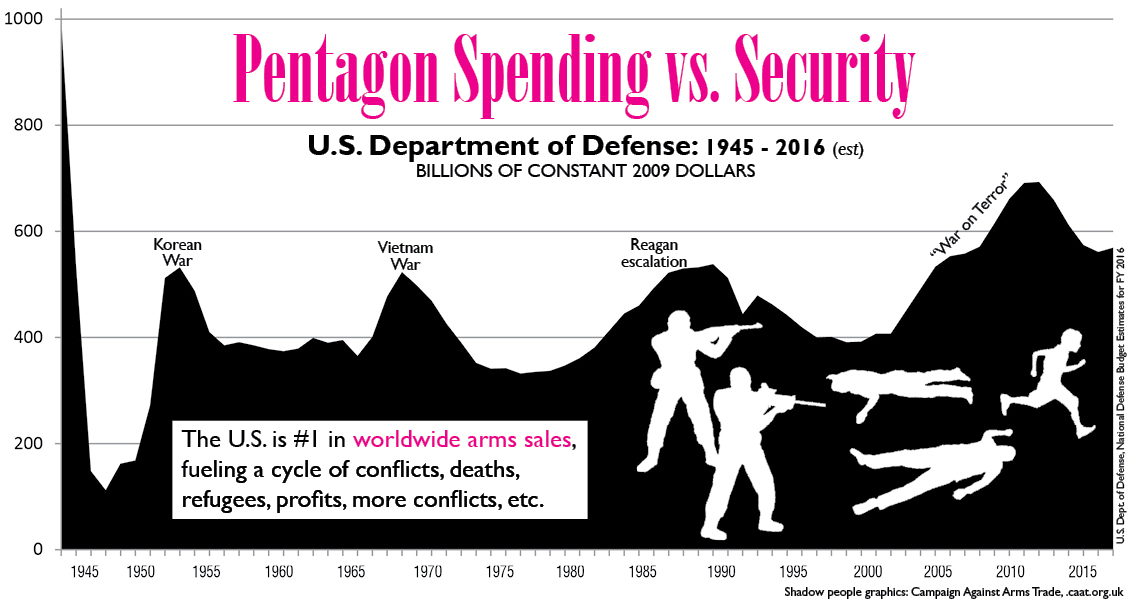
President Biden wants to change the paradigm. That may be easier than changing the Pentagon.
Peter Beinart / Opinion: The New York Times
(April 7, 2021) — President Biden loves spending money. Last month, he signed the $1.9 trillion American Rescue Plan to stimulate the economy. Now he’s pushing the $2 trillion American Jobs Plan to rebuild the nation’s infrastructure. He vows to follow that with the American Families Plan to improve health care, child care and education, which could cost billions or trillions more.
The more money Mr. Biden tries to spend, the more loudly critics ask where he’s getting it. He borrowed the funds for the stimulus. He wants corporations to pay for the infrastructure plan. With every legislative battle, finding the money grows harder. All of which raises a question: Will Mr. Biden try to cut defense?
Early reporting suggests that his administration’s first budget, which is expected later this spring, may not reduce military spending at all. That’s particularly remarkable given that, according to the Center for International Policy, today’s military budget, adjusted for inflation, is far higher than the post-World War II average.
It’s not as if there aren’t places to cut. In 2016, Bob Woodward and Craig Whitlock of The Washington Post disclosed that, according to an internal study, the Defense Department could save $125 billion over five years simply by trimming its distended bureaucracy. The department, the study found, employed close to 200,000 people in property management alone. After a summary of the report became public, Mr. Woodward and Mr. Whitlock noted, the Pentagon “imposed secrecy restrictions on the data making up the study, which ensured no one could replicate the findings.” It remains the only federal agency that has never passed an audit.
Mr. Biden could also save large sums on nuclear weapons. In the coming years, the military plans to develop and purchase more than 600 new nuclear missiles at a potential cost of over $100 billion. But as Elisabeth Eaves has detailed in The Bulletin of the Atomic Scientists, these missiles aren’t just wildly expensive. They’re dangerous. Because they are designed to fire while enemy missiles are still in the air, former Defense Secretary William Perry warns that they “could trigger an accidental nuclear war.” Mr. Perry has proposed phasing out America’s land-based nuclear weapons and relying on a safer air- and sea-based deterrent. If Mr. Biden followed Mr. Perry’s advice, he could save more than enough money to prepare vaccines for the 50 to 100 viruses most likely to cause the next pandemic.

Advocates of America’s mammoth defense budget claim it generates jobs. But academic studies reveal that it does so far less efficiently than government investment in education, clean energy, transportation and health care. Defense hawks also insist that without increased spending, the United States will lose its military primacy. In 2018, the Trump administration warned that America’s “competitive military advantage has been eroding,” especially in relation to China and Russia. In his confirmation hearing, Mr. Biden’s defense secretary, Lloyd Austin, called China “a pacing challenge for our department.”
China, however, spends less than one-third as much on defense as the United States does and has fewer than one-tenth as many nuclear weapons. China’s military could indeed be a match for the United States in conflicts near China’s shores, but globally, China poses a far greater economic challenge. To meet it, the United States must invest enormously in education and emerging technologies — the very investments that military spending will sooner or later crowd out. The two superpowers also compete ideologically, and the United States gravely undermines the appeal of its democratic system when, amid a pandemic, the dictatorship in China proves better able to keep its citizens alive.
One explanation for Mr. Biden’s reticence lies in Dwight Eisenhower’s warning about the “unwarranted influence” that America’s “military-industrial complex” could amass in “the councils of government.” This influence is especially intense in Congress, where many districts rely on military spending and where legislators feel the weight of the more than $100 million per year that the defense industry lavishes on lobbying.
But dollars don’t have to be destiny. Over the past decade, grass-roots rebellions have blunted the hold that other powerful industries wield inside the Democratic Party. As a result of Occupy, Black Lives Matter and populist political campaigns by Bernie Sanders and Elizabeth Warren, the days when a Democratic president could easily appoint a Treasury secretary from Goldman Sachs seem to be over. When it comes to defense contractors, however, there has been no similar transformation. So Mr. Biden, with minimal controversy, has appointed a defense secretary, General Austin, who served on the board of Raytheon Technologies.

It’s not just General Austin. Mr. Biden’s deputy defense secretary worked at the Center for Strategic and International Studies, a think tank whose funders include Northrop Grumman, Boeing and Lockheed Martin. As Mandy Smithberger at the Project on Government Oversight has noted, more than a dozen members of the Biden administration — including his top Asia adviser at the National Security Council and the official leading the Pentagon’s China strategy review — have ties to the Center for a New American Security, which according to a report by the Center for International Policy received more funding from defense contractors between 2014 and 2019 than any other think tank the group analyzed. Before becoming Mr. Biden’s secretary of state, Antony Blinken advised a private equity firm that focuses on the defense and aerospace sectors, among others.
None of this means that Mr. Biden and his advisers aren’t doing what they believe is best for the country. But their beliefs about what’s best for the country have evolved in a Beltway ecosystem in which the military-industrial complex wields enormous power.
Counteracting that power will require a mass movement. In 1967, the Rev. Dr. Martin Luther King Jr. warned against the “triple evils of racism, economic exploitation and militarism.” In this new season of progressive ambition, Mr. Biden is beginning to challenge the first two. It’s time for ordinary Americans to make him challenge the third.
Peter Beinart (@PeterBeinart) is professor of journalism and political science at The Newmark School of Journalism at The City University of New York. He is also editor-at-large of Jewish Currents and writes The Beinart Notebook, a weekly newsletter.
Posted in accordance with Title 17, Section 107, US Code, for noncommercial, educational purposes.